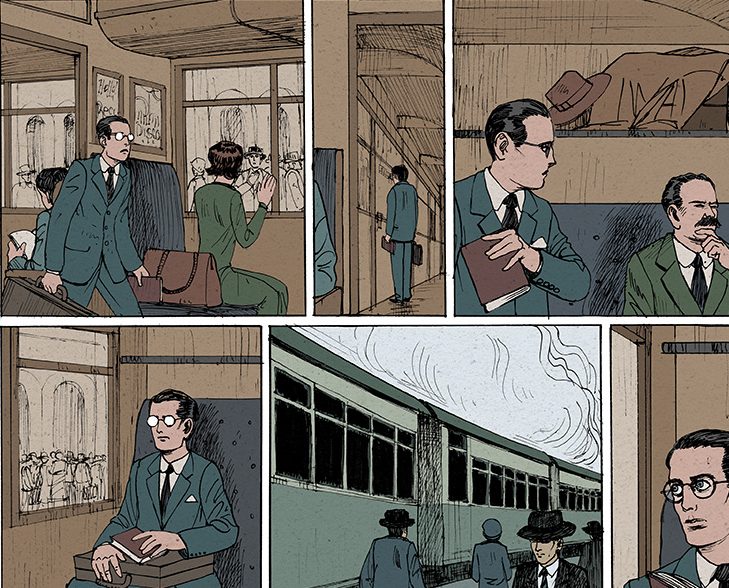 Still Alice
Still Alice
4 stars
As the dust settles on the Oscars and people argue the rights and wrongs of naming Birdman best picture, or wonder why Selma didn’t even get a look in, one sure thing remains: the Best Actress Award for Julianne Moore in Still Alice. Moore delivers a wonderfully subtle, yet emotionally charged, performance, and the Oscar is certainly deserved.
The film follows the descent into early-onset Alzheimer’s of a Columbia University professor of linguistics. The titular Alice struggles to prepare herself for inevitable intellectual oblivion, as the movie details her mind’s departure from reality.
While the main focus is the disease, the movie also shines a light on Alice’s relationship with her over-achieving family, who are not used to having to deal with a problem they can’t work at to overcome. Workaholic husband John (Alec Baldwin) is torn between trying to help and not wanting to harm his career by becoming a full-time carer.
The film asks some interesting and thorny questions about life-threatening illnesses, showing that what can sometimes be seen as cruelty is in fact desperation by relatives who are not able, or willing, to face up to the pain or reality of a situation. However, although it is a powerful and sometimes difficult watch, in some ways it shies away from the nightmarish reality of the condition.
The film’s co-director Richard Glatzer recently died of ALS, but lived to see Moore win the Oscar from his hospital bed. He shared the writing and co-directing credit with Wash Westmoreland, who was also his husband. The parallels with the couple’s own experience of a fast-acting degenerative disease perhaps explain the movie’s unusual level of sincerity and emotional depth, something rarely seen in Hollywood.
 Escobar: Paradise Lost
Escobar: Paradise Lost
3 stars
For his directorial debut, Italian director Andrea Di Stefano fashions a romantic thriller out of the dark, morally dubious world of Pablo Escobar and his drug empire in Escobar: Paradise Lost.
Fresh off the back of the latest Hunger Games movie, Josh Hutcherson proves his acting range extends beyond playing Jennifer Lawrence´s pretty boy love interest, in the role of Nick, a Canadian surfer who finds himself well out of his depth in early 90’s Colombia at the height of Escobar’s power and notoriety. When Nick falls for Escobar’s niece, Maria, he is soon caught up in the drug kingpin’s murky dealings with death and corruption.
Oscar-winning Spanish actor Benicio del Toro puts on the pounds and a Paisa accent to play Colombia’s most infamous Antioqueño. Del Toro employs his dark, penetrating eyes to chilling effect, imbuing the drug lord with a sly charm and a hidden menace which lurks just beneath the surface.
Instead of giving the talented Del Toro the freedom to explore a complex character on screen, Di Stefano opts instead to focus on the fictional Nick, an implausibly naive good guy (at one point he earnestly asks Maria how her uncle made all of his money) who is desperately trying to stay alive in a cat-and-mouse game with Escobar. Spanish actress Claudia Traisac provides the tears and a large dose of melodrama as Maria (although her casting begs the question: were no actual Colombian actresses available?), while director Di Stefano skillfully ratchets up the dramatic tension until the very end.
 Big Eyes
Big Eyes
3 stars
Tim Burton reunites with the writing team that brought us the brilliant Ed Wood to bring us his latest cinematic offering, Big Eyes. Part biopic, part social commentary, Big Eyes is based on the fascinating true story of Margaret Keane (Amy Adams), a r painter who meets and marries the charismatic Walter (Christopher Waltz), a man possessing little artistic talent, but with a genuine gift for sales and marketing.
After Walter hits on the idea of commercialising his wife’s paintings of “big-eyed waifs” through the mass-production of affordable posters, they become an extraordinary success and Walter decides to take complete credit for Margaret’s work. All the while, Margaret leads a stifled existence at home, painting sixteen hours a day and complicit in her husband’s fraudulent lie.
Aside from a few scenes in which a tormented Margaret’s mind’s eye projects the big eyes of her paintings onto local residents, Tim Burton’s trademark visual flair and Gothic stylings are conspicuously absent. Indeed, the director of classics Batman and Edward Scissorhands seems to have wilfully erased most traces of what made those films so utterly distinctive in a bid to make a more “mature” film.
To its credit, Big Eyes does provide the audience with food for thought: will Margaret find the courage to stand up to her domineering husband and thereby challenge the patriarchal society of the 1950’s in which women are meant to “know their place”? While viewers are rightly on the side of the long-suffering Margaret, Burton remains neutral on the issue of whether Margaret’s mass-produced work is in fact “good” art or merely populist kitsch.
Adams’ subdued performance as Margaret contrasts a little too sharply with Christopher Waltz’s character who huffs and puffs and generally hams it up to the max as he transforms from a charming husband into an over-the-top womaniser and con man. A subtle character study this most certainly is not.
Despite its intriguing subject matter and refreshingly feminist stance, Big Eyes is merely a solid, unspectacular drama, lacking in genuine insight, which could have been made and produced by any number of lesser-talented directors. Like Margaret and her art, perhaps Burton should have stamped his signature on his own piece of cinematic work with a good deal more authority.
By Duncan Hall & Robin Davies




